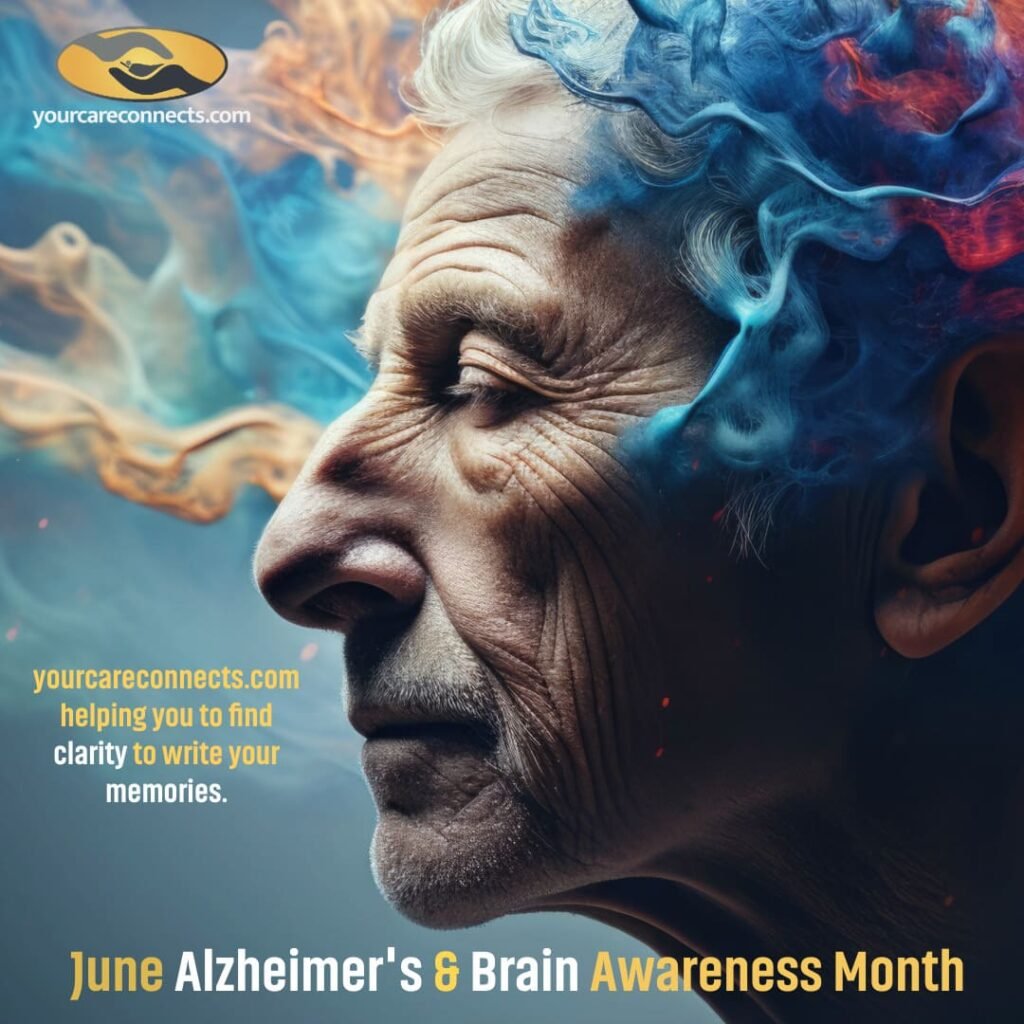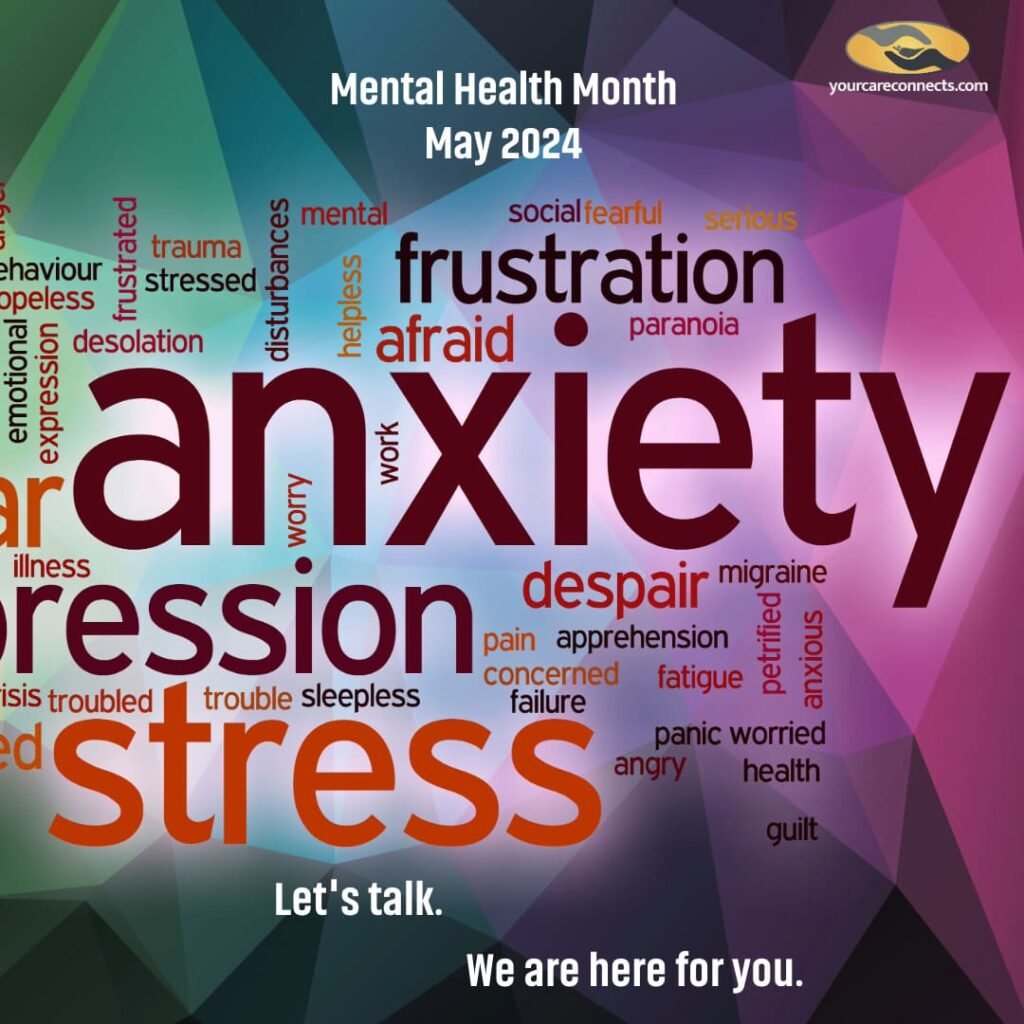
June is Alzheimer’s and Brain Awareness Month, a crucial time to spread awareness about Alzheimer’s disease and other dementias. This month provides an opportunity for communities to come together, educate themselves, and support those affected by these conditions. Understanding Alzheimer’s Disease Alzheimer’s disease is a progressive brain disorder that leads to memory loss, cognitive decline, and behavioral changes. It is the most common form of dementia, impacting millions of people worldwide. Understanding the basics of Alzheimer’s is the first step in building a supportive and informed community. Key Symptoms of Alzheimer’s: The Importance of Alzheimer’s and Brain Awareness Month Raising awareness about Alzheimer’s and brain health is essential for several reasons: How Communities Can Get Involved Communities can play a significant role in supporting Alzheimer’s and Brain Awareness Month through various activities and initiatives: Promoting Brain Health While there is currently no cure for Alzheimer’s, certain lifestyle changes can help maintain brain health and potentially reduce the risk of cognitive decline: Alzheimer’s and Brain Awareness Month is a time for communities to come together, educate themselves, and support those affected by Alzheimer’s and other dementias. By raising awareness, promoting brain health, and supporting caregivers, we can make a meaningful impact in the fight against Alzheimer’s disease. Join us this June in spreading the word and making a difference in the lives of millions.

Understanding the Rise in Mental Health Diagnoses What is a Mental Health Crisis? A mental health crisis is a situation in which a person’s mental health deteriorates to the point where they are unable to function in their daily life. This can manifest in various ways, such as severe anxiety, depression, panic attacks, or suicidal thoughts. A mental health crisis can occur suddenly or develop gradually over time. Understanding what is a mental health crisis is crucial for providing timely and effective support to those in need. What is Behavioral Health? Behavioral health refers to the connection between behaviors and the health and well-being of the body, mind, and spirit. It encompasses mental health, substance abuse, and other behaviors that impact an individual’s health. Understanding what is behavioral health is essential for recognizing the comprehensive approach needed to address mental health issues. The Growth in Mental Health Diagnoses In recent years, there has been a significant increase in the number of people diagnosed with mental health conditions. This growth can be attributed to several factors, including greater awareness, improved diagnostic techniques, and the reduction of stigma surrounding mental health. Increased Awareness and Education One of the primary reasons for the rise in mental health diagnoses is increased awareness and education about mental health issues. Campaigns and initiatives have been launched globally to educate the public about mental health, what is a mental health crisis, and what is behavioral health. This has led to more people recognizing the signs and symptoms of mental health conditions and seeking help. For more information on global mental health awareness, you can visit the World Health Organization’s mental health page. Improved Diagnostic Techniques Advancements in medical and psychological research have led to improved diagnostic techniques, making it easier for healthcare professionals to identify mental health conditions. With better tools and criteria, clinicians can more accurately diagnose what is a mental health crisis and provide appropriate interventions. Reduction of Stigma The reduction of stigma surrounding mental health has also contributed to the increase in diagnoses. As society becomes more accepting of mental health issues, individuals are more likely to seek help and receive a diagnosis. This shift in attitude has been crucial in helping people understand what is behavioral health and the importance of addressing mental health concerns. Possible Causes of Mental Health Issues The rise in mental health diagnoses can also be linked to various societal, environmental, and individual factors. Understanding these causes is essential for addressing what is a mental health crisis and what is behavioral health. Societal Factors Societal factors such as economic stress, social isolation, and the impact of social media can contribute to mental health issues. Economic instability and job insecurity can lead to anxiety and depression. Social isolation, particularly exacerbated by the COVID-19 pandemic, has also been a significant factor. The influence of social media, with its potential for cyberbullying and unrealistic comparisons, can negatively affect mental health. Environmental Factors Environmental factors, including exposure to trauma, violence, and adverse childhood experiences, play a critical role in the development of mental health conditions. Understanding what is a mental health crisis often involves examining these environmental influences and their impact on individuals. Individual Factors Individual factors such as genetics, personality traits, and personal experiences can also contribute to mental health issues. Genetic predisposition can make some individuals more susceptible to conditions like depression and anxiety. Personality traits, such as high levels of neuroticism, can also increase the risk of mental health problems. Addressing the Mental Health Crisis Addressing the rise in mental health diagnoses requires a multi-faceted approach that includes education, early intervention, and access to mental health services. Understanding what is behavioral health and what is a mental health crisis is the first step in creating effective strategies to support those in need. Education and Awareness Continued efforts to educate the public about mental health, what is a mental health crisis, and what is behavioral health are essential. Schools, workplaces, and communities should be equipped with resources and information to support mental health awareness. Early Intervention Early intervention is crucial in addressing mental health issues before they escalate into crises. Identifying and addressing mental health concerns at an early stage can prevent the development of more severe conditions. This includes recognizing the signs of what is a mental health crisis and providing timely support. Access to Mental Health Services Ensuring access to mental health services is vital for addressing the growing number of diagnoses. This includes providing affordable and accessible mental health care, as well as integrating mental health services into primary care settings. Understanding what is behavioral health and incorporating it into healthcare systems can improve overall well-being.

April marks a significant period dedicated to enhancing our understanding and management of stress with the annual observance of April Stress Awareness Month. As stress levels in society reach all-time highs, this month serves as a critical reminder of the importance of taking proactive steps to manage stress through various activities and strategies. This article explores a range of activities designed to promote stress management and overall well-being. Understanding Stress and Its Impacts Before diving into the activities, it’s crucial to understand what stress is and how it affects us. Stress refers to the body’s response to any demand or challenge, which can be triggered by both good and bad experiences. When faced with a challenge, our body responds physically, mentally, and emotionally. While stress is a normal part of life, excessive stress can lead to serious health problems, including mental health disorders, cardiovascular disease, and a weakened immune system. Activities for April Stress Awareness Month Personalized Stress Management Plans Creating a personalized stress management plan is vital. Identify the activities that you enjoy and that you find effective in reducing stress. This could be reading, spending time with loved ones, or engaging in hobbies. April Stress Awareness Day can serve as a starting point to commit to these activities regularly. Community Involvement Engaging with your community can enhance your support network and decrease feelings of isolation, which are often associated with increased stress levels. Community events focused on stress reduction can provide valuable resources and foster a sense of belonging. Reflecting on April Stress Awareness Month: Activities for Sustained Well-being April Stress Awareness Month offers a valuable opportunity to refocus our efforts on effective stress management techniques and the promotion of mental wellness. By engaging in a variety of activities designed to alleviate stress, individuals can significantly improve their quality of life and foster resilience against everyday pressures. Whether it’s through physical exercise, creative expression, or mindfulness practices, each activity contributes to a more balanced and healthy mental state. Moreover, this month serves as a reminder of the collective efforts needed to address the widespread issue of stress in our communities. It encourages the creation of supportive environments where individuals feel empowered to discuss and manage their stress. Communities that promote regular participation in stress reduction activities benefit from a stronger, more connected populace. As we continue to navigate through the challenges and stresses of daily life, let us take this time to commit to ongoing stress management. April Stress Awareness Month is not just a period for learning and temporary participation but a starting point for lifelong practices that enhance our well-being and overall happiness. Engaging in these activities can lead to lasting changes that resonate throughout all areas of our lives, promoting a healthier, more joyful existence.




